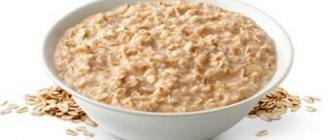Eggs for breakfast are a fairly popular dish in many countries around the world. This is explained by availability, price, and speed of preparation. There are a huge number of valuable properties in such a small product. Moreover, eggs are actively used for losing excess weight. How it works? Now we'll tell you.
What to eat to pump up? 10 Simple Foods to Gain Muscle Mass
What are the benefits of eggs?
For a long time, people have been concerned about the impact of eggs on health. Disputes between supporters and opponents of the product have not subsided to this day. Like any other component of the diet, eggs have beneficial and harmful properties.
The egg is considered the standard of a natural product: it contains the most balanced combination of vitamins, nutrients and microelements. This entire list of properties brings undeniable benefits to the body. The product provides a number of benefits for our health.
Photo: istockphoto.com
Scientific opinion: eggs really help you lose weight
Eggs are an easily digestible product, so they are often recommended for dietary nutrition. They really help you lose weight. The thesis is confirmed by repeated studies of their dietary characteristics. An article by American scientists published in the International Journal of Obesity helps to understand the benefits of eggs. Researchers asked: could overweight people lose weight twice as fast by combining a low-calorie diet with eggs for breakfast?
Morning habit: what will happen if you eat oatmeal every day
152 volunteers took part in the experiment: men and women from 25 to 60 years old with slight excess weight or obesity. People were divided into groups. The first was put on a diet in which breakfast consisted of only two eggs. The second morning she ate donuts, the same calorie content as two eggs.
The experiment lasted eight weeks, and its results were sure to please protein breakfast lovers. The first group, which followed the egg diet, lost 65% more weight than the second group. Scientists have proven that consuming this product in the morning promotes weight loss in combination with a low-calorie diet. We also learned that eating an egg breakfast made you feel more full and significantly reduced your desire to snack between meals.
Egg diet
Have you ever heard of that diet where you only eat egg whites for a week?
Because this part of the egg has a high protein content and a complex structure, it is considered excellent for those who want to lose weight because it takes longer to digest, which promotes satiety and reduces hunger.
Blonde with silver-gray tints: 10 spectacular “cold” coloring ideas
Scientists have discovered an unexpected effect of eating apples
No weeds, little watering: the secret to “lazy” planting bottle cucumbers
Baked potatoes are indicated by the presence in their composition of carbohydrates, nutrients associated with the flow of energy into the body. There are several versions of this diet. One of them is the consumption of sweet potatoes, egg whites and lemon juice. To detoxify the body and provide vitamin C.
Another option is to eat a whole egg every day for breakfast. This allows you to control your hunger from the very beginning of the day.
Protein in its purest form
Egg whites are superior in parameters to fish and meat. 100 grams of product contains as much as 13 grams of pure protein. It helps build muscle mass, strengthen bones, fight obesity and improve brain function. Due to its high content of nutrients, protein neutralizes inflammatory processes and regulates the acid-base balance.
Photo: istockphoto.com
Eggs have increased nutritional value, which makes them an indispensable source of energy. Eating them raw helps in recovery from damage to the vocal cords. The product also normalizes the functioning of the nervous and cardiovascular systems. Egg components help fight external irritants, including the development of cancer pathologies. Eggs are also good for pregnant women: their high vitamin content contributes to the normal development of the fetus.
The product is also rich in Omega-3 polyunsaturated fatty acids. They help improve brain activity and vision.
Why isn't sushi PP? Breaking down the ingredients of your favorite Japanese dish
Eggs: benefits and harms
In short, all conversations about the benefits and harms of eggs can be reduced to two statements:
- eggs are healthy because they are a source of high-quality protein;
- eggs are harmful because they contain a lot of cholesterol.
Let's consider both theses in order.
First of all, let us remember that humans eat mainly chicken eggs, but do not forget that the eggs of all birds, as well as some reptiles, are edible.
Archaeological evidence suggests that the chicken was domesticated more than 7500 BC, before which eggs were obtained by scavenging.
Eggs are a very valuable food product. It contains proteins and fats, B vitamins, enzymes and fatty acids.
Let me remind you that vitamins are an extremely important thing for any person involved in sports. I already wrote an article about vitamins for sports.
The egg white consists of 90% water, 10% protein.
The protein mixture (protein profile) contains the following proteins:
- ovalbumin (about 54%);
- ovotransferrin or conalbumin (12-13%).
- lysozyme (3.4-3.5%).
- ovomucoid;
- ovomucin (1.5-3.5%);
- ovoglobulins (2%).
The listed substances supply the body with an optimally balanced composition of essential amino acids (the building blocks of which proteins are made) and have a bactericidal and glycoprotein effect.
The yolk takes up to a third of the total content of the egg (except for the shell) and contains proteins (2.5...2.9 grams), cholesterol (about 140 mg), half a gram of carbohydrates and about 4.5 grams of fat.
Total calories:
- egg mixture is 155 kcal per 100 grams of product;
- protein calorie content 44 kcal/100 grams;
- yolk – 352 kcal/100 grams;
It should be remembered that for the first time protein in its pure form was obtained from chicken egg white.
Before people knew what whey protein was, egg whites were the source of high-quality protein for bodybuilders.
As is not difficult to see, egg whites are considered “good” foods, but it is recommended to limit the consumption of yolks due to their supposedly high cholesterol content.
The benefits of chicken eggs
Egg white, by the way, is often called “ideal” in terms of digestibility and biological value; it is even better in terms of amino acid profile in terms of benefits than beef, for example.
The biological value of egg white is estimated at 100 units on a 100-point scale, while protein from animal meat has an assessment of 80-88 units, and from dairy products 85-86 units.
One of the biggest benefits of eating eggs is the ability to get high-quality protein at a low cost.
One egg contains 6-7 grams of protein with an optimal set of amino acids, and its cost will be lower than the cost of protein from other animal products.
It is important that you understand that the full benefits of chicken eggs in general and whites in particular are manifested precisely when the whites are consumed together with the yolk.
PROTEIN SHOULD BE EATED WITH YOLK, in most cases!
That is why, even if you use exclusively egg whites in your food, I still recommend that you eat the yolk of at least one egg.
Chicken egg white is a low-calorie product due to the complete absence of other substances, fats and carbohydrates.
If we consider beef, milk or chicken breast from this point of view, then egg white is the undisputed champion:
- per 100 grams of egg white there are 44 kcal and 10-12 grams of protein;
- the energy value of 100 grams of beef is 210 kcal with 15-17 grams of protein;
- milk – 69 kcal/3-4 grams;
- skinless chicken breast – about 100 kcal and 20 grams of protein;
At the same time, the price in rubles of 1 gram of protein (protein) in egg white is at least 30% lower than in chicken fillet (for other products the difference is even more significant, you can look at my BZHU table).
Damage to chicken eggs
When they talk about the dangers of chicken eggs, they primarily mean the cholesterol contained in the yolk.
The established and moss-covered opinion of not only ordinary people, but also nutritionists, indiscriminately attributed to egg cholesterol the ability to clog blood vessels with fatty (cholesterol) plaques, causing atherosclerosis, coronary heart disease, heart attacks and strokes.
And blockage of blood vessels is a very serious problem, because... It is more difficult for our blood to make its way through the narrowed lumens and it becomes more difficult for the heart to pump blood, especially if the density of the blood also increases.
As of today, diseases of the cardiovascular system are the cause of death in 31% of all deaths, while cancer is in second place with 14%.
It is not surprising that findings from previous studies raised concerns about egg yolks and the need to limit egg consumption to maintain vascular health.
Below we will look at where the roots of this opinion come from.
Negative effects of eggs on the body
Eggs become harmful when they are consumed in large quantities and without heat treatment. Eating raw eggs increases the risk of salmonella infection. These are bacteria that cause very real harm to health; they are pathogenic for humans. You can also develop dehydration or kidney failure.
Another extreme of love for protein products is the egg diet. It has gained popularity due to the fact that it brings fairly quick results in losing weight. In a week, such a diet will help you lose up to five kilograms, but it will bring even more negative consequences, like any other protein diet. Anna Berseneva shared her opinion about their harm to the body on her Instagram.
:
Anna:
Yes, such diets give external quick results, but, unfortunately, the price of this effect is too high! Here are some of the very likely consequences of diets consisting primarily of animal protein. The risk of developing cardiovascular diseases increases, and women are more susceptible to this situation. Dysbacteriosis and disorders of the gastrointestinal tract, because a protein diet limits the intake of foods containing fiber. Metabolic disorders: metabolic processes slow down due to intoxication of the body. The acid-base balance is disrupted, as breakdown products poison the environment in the body, creating intoxication, which leads to cell death. Liver tissue is destroyed and the kidneys are seriously damaged. This is an additional risk for women! Overload with toxins and breakdown products, namely nitrogen, which tends to be deposited in the genital tract, creates a risk in the fertilization process. ⠀
Photo: istockphoto.com
It is important to minimize the possibility of bacterial infection, so doctors recommend eating the product boiled. In addition, it is worth considering that egg white causes an allergic reaction. This is a fairly common phenomenon among children. For example, in the USA this type of allergy is in second place after the corresponding reaction to peanuts. The main allergen in egg whites is albumin. As soon as it enters the digestive system, the body begins to produce antibodies.
Is the yolk really that bad?
On the one hand, the yolk is also a storehouse of vitamins and minerals; it contains almost the entire periodic table.
One egg provides the entire daily requirement of vitamins and minerals.
And this is not surprising, because nature created the egg in order to provide the embryo with everything necessary. But the yolk contains a large amount of cholesterol. One yolk contains almost two daily norms of cholesterol, that is, 570 milligrams, while the norm is 300 milligrams. This is the very stumbling block. If they talk about the dangers of eggs, then, I think, they mean exactly this point. But do not forget that, in addition to cholesterol, the yolk contains useful phospholipids - choline and lecithin. They just normalize fat metabolism.
“Therefore, to say that eggs are harmful to health will still be wrong. Because this harm, which consists of a large amount of cholesterol, is neutralized by the egg itself due to beneficial fatty acids and phospholipids.”
Of course, if a person abuses not only eggs, but also other animal fats that contain large amounts of cholesterol, this can ultimately lead to atherosclerosis and the development of myocardial infarction.
But the egg itself cannot lead to the development of cardiovascular diseases.
The norm for a person is to eat one egg per day. Although there are scientists who believe that eggs can generally be eaten without restrictions, because the balanced composition of phospholipids is such that in itself cannot lead to an increase in cholesterol levels in the blood. Other scientists are inclined to believe that people with high cholesterol levels should still limit themselves. They are recommended to eat 2-3 eggs per week.
How often can you eat eggs?
There is an opinion that you should not eat eggs regularly, as they are harmful to the cardiovascular system due to the high amount of cholesterol. Indeed, the yolks contain 200 mg of cholesterol, but numerous studies have not confirmed an increase in its level in the blood of people who regularly ate three whole eggs per day.
The cholesterol in eggs can hardly be called bad. The so-called trans fats in this product are much more harmful. An adult can regularly eat up to two whole eggs per day, but in general you can eat more protein.
Don't even try: diets that definitely won't help you
What are the dangers of eggs?
Although eggs contain a rich composition of nutrients, their consumption as food should be limited. Nutritionists do not recommend consuming more than three pieces in one week. This is due to the high cholesterol content in eggs.
If the metabolic process in the body functions normally, then cholesterol itself is produced in small quantities. If the amount of cholesterol is increased, this can cause diseases that are associated with its excessive levels in the blood. For example, atherosclerosis, coronary heart disease and other heart diseases. Scientists have established a very high cholesterol content in the product in question, which is the reason why you should not eat a lot of eggs. Even fast food is less harmful according to these characteristics. For example, cardiologists strongly discourage consuming more than 200 mg of cholesterol per day. The content of this substance in one egg can reach up to 275 mg.
The opinion of nutritionists is that eating eggs is unacceptable under any diet. Speaking about why men should not eat a lot of eggs, it is worth noting that it is the stronger sex who are more prone to cardiovascular diseases due to excess cholesterol.
Eggs are an allergenic product, especially for young children. For this reason, limiting their amount in the diet is required.
Use in folk medicine
Since ancient times, patients with psoriasis, asthma and stomach ulcers have been advised to treat themselves with eggs. The product was recommended as a remedy for dandruff and brittle hair. What are the benefits of eggs for the human body? The fact is that he receives all the necessary substances. You can find quite a lot of recipes online for both external and internal use. Ointments and balms are also made from the protein product, and the most inventive ones are a face mask. Its applications are limitless. But we recommend using proven means to combat diseases and be sure to consult with specialists.











